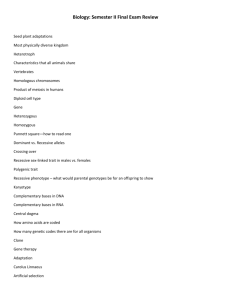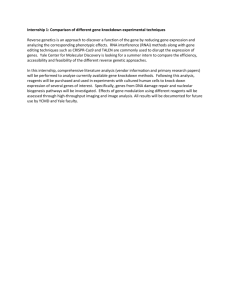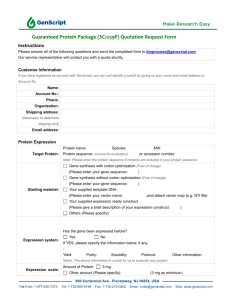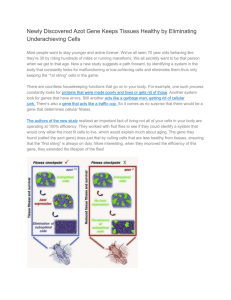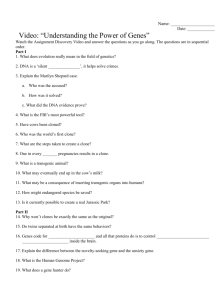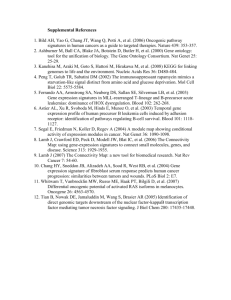3—10 What are some inherited diseases?
advertisement
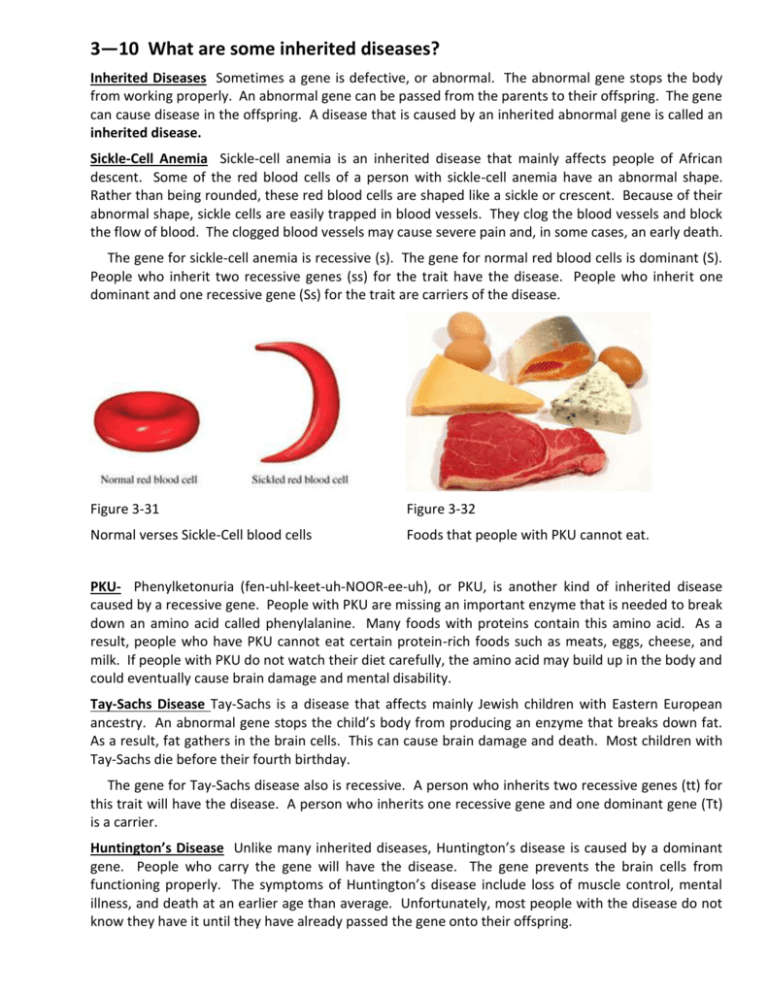
3—10 What are some inherited diseases? Inherited Diseases Sometimes a gene is defective, or abnormal. The abnormal gene stops the body from working properly. An abnormal gene can be passed from the parents to their offspring. The gene can cause disease in the offspring. A disease that is caused by an inherited abnormal gene is called an inherited disease. Sickle-Cell Anemia Sickle-cell anemia is an inherited disease that mainly affects people of African descent. Some of the red blood cells of a person with sickle-cell anemia have an abnormal shape. Rather than being rounded, these red blood cells are shaped like a sickle or crescent. Because of their abnormal shape, sickle cells are easily trapped in blood vessels. They clog the blood vessels and block the flow of blood. The clogged blood vessels may cause severe pain and, in some cases, an early death. The gene for sickle-cell anemia is recessive (s). The gene for normal red blood cells is dominant (S). People who inherit two recessive genes (ss) for the trait have the disease. People who inherit one dominant and one recessive gene (Ss) for the trait are carriers of the disease. Figure 3-31 Figure 3-32 Normal verses Sickle-Cell blood cells Foods that people with PKU cannot eat. PKU- Phenylketonuria (fen-uhl-keet-uh-NOOR-ee-uh), or PKU, is another kind of inherited disease caused by a recessive gene. People with PKU are missing an important enzyme that is needed to break down an amino acid called phenylalanine. Many foods with proteins contain this amino acid. As a result, people who have PKU cannot eat certain protein-rich foods such as meats, eggs, cheese, and milk. If people with PKU do not watch their diet carefully, the amino acid may build up in the body and could eventually cause brain damage and mental disability. Tay-Sachs Disease Tay-Sachs is a disease that affects mainly Jewish children with Eastern European ancestry. An abnormal gene stops the child’s body from producing an enzyme that breaks down fat. As a result, fat gathers in the brain cells. This can cause brain damage and death. Most children with Tay-Sachs die before their fourth birthday. The gene for Tay-Sachs disease also is recessive. A person who inherits two recessive genes (tt) for this trait will have the disease. A person who inherits one recessive gene and one dominant gene (Tt) is a carrier. Huntington’s Disease Unlike many inherited diseases, Huntington’s disease is caused by a dominant gene. People who carry the gene will have the disease. The gene prevents the brain cells from functioning properly. The symptoms of Huntington’s disease include loss of muscle control, mental illness, and death at an earlier age than average. Unfortunately, most people with the disease do not know they have it until they have already passed the gene onto their offspring. CHECKING CONCEPTS 1. What causes inherited diseases? 2. How do sickle cells differ from normal red blood cells? 3. Which disease leads to the blockage of blood vessels? 4. What is the percentage chance that the offspring of two parent who are both carriers of the Tay-Sachs gene will have the disease? 5. Huntington’s disease is carried by which type of gene?

